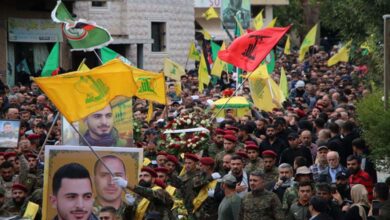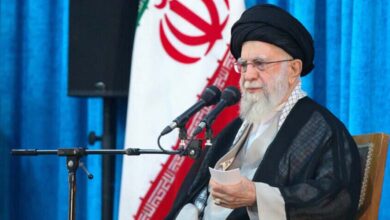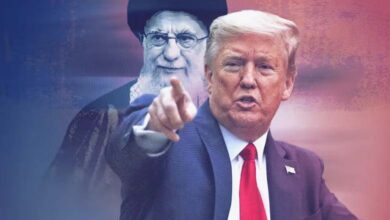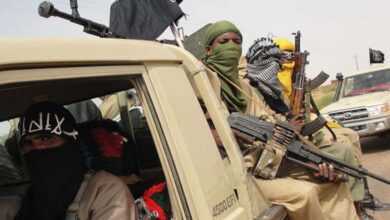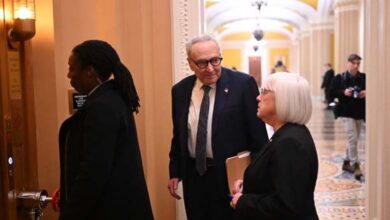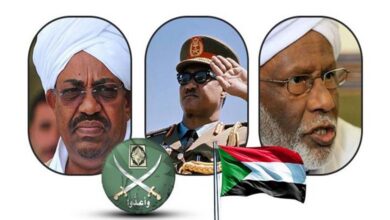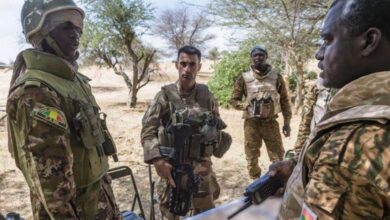Lebanon Maintains Rejection of Interference Ahead of Larijani’s Visit
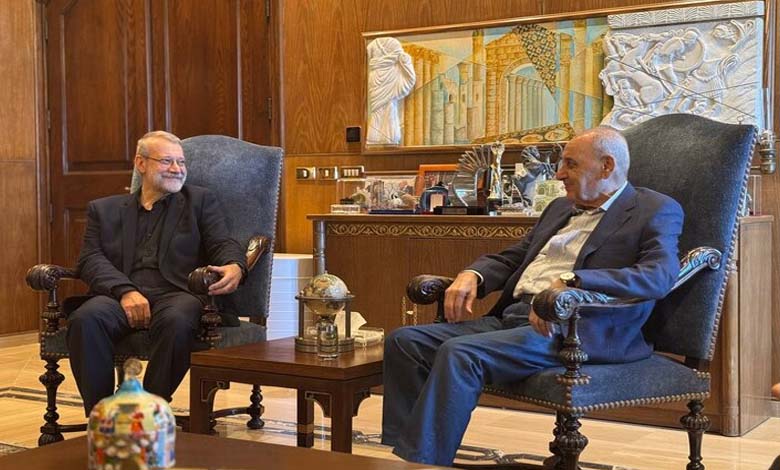
On the eve of the visit to Beirut, scheduled for Wednesday, by the Secretary-General of Iran’s Supreme National Security Council, Ali Larijani, Lebanese authorities continue to affirm their commitment to national sovereignty and their opposition to any foreign interference.
-
Hezbollah Faces a Silent Collapse: Missing Leadership, Besieged Weapons
-
Beirut Port Explosion Anniversary: Justice Moves Forward Despite Hezbollah’s Obstruction
Despite mounting tensions and warnings about Iranian involvement, official sources indicate that Larijani will meet President Joseph Aoun, Parliament Speaker Nabih Berri, and Prime Minister Nawaf Salam, but will not hold talks with Foreign Minister Youssef Rajji.
During a meeting with a delegation from the “Beirut Minarati” association, led by lawyer Marwan Salam, President Aoun stated: “The current challenges in the region can only be met through our unity, whether some like it or not. Seeking foreign support against fellow citizens is unacceptable and has harmed the country. We must learn from past experiences.”
-
U.S. Patience Wears Thin as Hezbollah Disarmament Stalls
-
Taëf and Weapons Control: Salam Stands for State Restoration, Hezbollah Holds Its Ground
Free Patriotic Movement Rejects Internal Strife
In the same context, Gebran Bassil, leader of the Free Patriotic Movement, stressed the need for a concrete plan to place all weapons under the sole authority of the state, rejecting internal discord and “any form of blackmail or threat of civil war” aimed at preventing this unification. He emphasized that any arms outside state control are illegal, except in cases of legitimate self-defense.
Bassil underlined that disarmament is a national interest for safeguarding Lebanon’s sovereignty and stability. He called for a comprehensive, gradual solution to strengthen the Lebanese army and place all weapons under state control, while preserving the role of all national components.
-
Hezbollah resists internal and external pressure to disarm
-
After a Defeat… Hezbollah Now Ties the Decision to Go to War to the Lebanese State
Kataeb Condemns Iranian Interference
The Kataeb Party, for its part, denounced what it described as “direct threats” from Hezbollah toward the government and firmly rejected Iranian interference in Lebanese affairs. The party stressed that “protecting sovereignty begins with placing all arms in the hands of the state” and urged respect for government decisions aimed at bolstering the army’s capabilities and ending illegal weapon possession.
According to the Kataeb, maintaining weapons in circulation at this stage keeps Lebanon “a hostage to chaos and tension.” The party said Hezbollah’s rejection of the government’s plan amounts to “inciting a coup against legitimacy.”
-
Israel Warns Naim Qassem: There Will Be No Hezbollah in That Case
-
Lebanon Dismantles Hezbollah Network with Israeli Support
Larijani’s visit takes place in an atmosphere of caution and concern, particularly following statements from Iranian officials confirming Tehran’s continued support for Hezbollah and its arsenal, amid growing political and public rejection in Lebanon of actions undermining national sovereignty.
Last Saturday, the Lebanese Ministry of Foreign Affairs condemned what it called blatant Iranian interference in its internal affairs, urging Tehran to focus on the needs of its own people.
This came in response to remarks by Ali Akbar Velayati, senior adviser to Supreme Leader Ali Khamenei, in which he voiced Iran’s opposition to the government’s plan to disarm Hezbollah.
-
Israel Announces Killer Beam to Counter Hezbollah
-
Hezbollah’s Footprints in the Heart of Sanaa: Ṣarif Explosion Exposes Iran’s Missile Network
In a statement, the Lebanese Foreign Ministry denounced “the recent statements by Mr. Velayati, which constitute an explicit and unacceptable interference in Lebanon’s internal affairs.”
Velayati had told the Tasnim news agency that Iran “strongly opposes the disarmament of Hezbollah,” adding that Tehran had “always supported the Lebanese people and the resistance, and continues to do so.”
The ministry criticized the repeated pattern by certain senior Iranian officials “who persist in making dubious comments on internal Lebanese decisions that do not concern the Islamic Republic in any way,” stating that “Iran would be better advised to focus on the issues and aspirations of its own people rather than intervening in matters unrelated to it.”
-
Hezbollah courts Trump with a language of interests: from the Great Satan to investment opportunities
-
How Did Israel Target Hezbollah Leaders? Details Emerge to Unveil the Mystery
The ministry reaffirmed that it “will not allow any external party, friend or foe, to speak on behalf of its people or to claim the right to oversee its sovereign decisions.”
At the end of April, the Lebanese Foreign Ministry summoned Iran’s ambassador to Beirut, Mojtaba Amani, to clarify remarks he made regarding Hezbollah’s disarmament.
The summons followed a post by Amani on the social media platform X, in which he described the disarmament plan — without explicitly naming Hezbollah — as “a clear conspiracy against states,” adding that “once such states surrender to disarmament demands, they become vulnerable to attack and occupation.” After the meeting, the ambassador stated that this matter was “a purely internal Lebanese issue,” according to Lebanese media reports.



